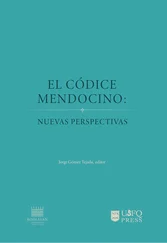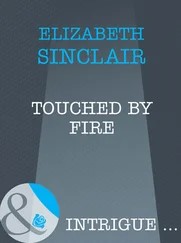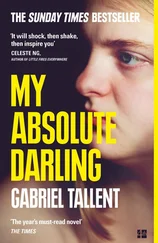7
A woman she doesn’t recognize opens the door and says “You made it” and then “Come in, come in,” and then, when she steps inside, “If you’ve been waiting out there in the cold I’m sorry, your mother had your brother dial down the doorbell so as not to disturb your father when he’s resting, there’ve been a lot of visitors, your pastor’s been by twice today, to pray with your mother, in fact the last time he rang the bell we all thought it was you, and of course since then the storm got much worse,” pausing, reaching to clasp her hands between her own, “Your poor hands! Your poor hands! Cold as ice!” and then, without letting go of her hands, “I’m the one called you,” and then, letting go at last, “Well, you best get out of those wet things,” and as she bends to unzip her sodden suede ankle boots and set them next to the rabble of boots, adult- and child-sized, on the old towel spread over a layer of newspapers along the entryway’s far wall, the faded blue of the towel summoning the backyard clothesline the towel had once been pinned to, rumpling when the breeze off the lake caught it, a much brighter blue then, blue almost as the lake only fifty yards or so from this cottage they stayed in every August, one plywood-walled cubicle for her sister, one for her brother, the farthest bedroom for her parents, no doors to any of the rooms, only frayed floral curtains that could be tugged closed along tight-strung wires, making it possible for her, a thirteen-year-old maddened by her family’s infinite shortcomings, stretched sleepless on the couch whose prickling nap was so saturated with other people’s suntan lotion and cigarette smoke that she could hardly bear contact with it, to overhear, incredulous, her mother mewing in wrenched, ascending, greedy ecstasy. She unzips her raincoat but hesitates to shrug it off, unwilling for the hospice worker to continue playing hostess by taking her coat from her and hanging it up, but realizes she probably appears forlorn, standing there in her California girl’s coat, and the hat, the foolish hat that she rips off, static electricity causing her hair to trail after it, and sticks in a pocket of the raincoat. “I was just about to leave, myself,” the hospice worker says. “Everything that’s left to do for him, medication for the pain, your mother can handle, she’s precise, your mother, she would have made a good nurse, and I was just about out the door, but I’m so glad I got to meet you,” and taking a down coat the size of a sleeping bag from the closet the hospice worker says, “He’s been holding on till you get here,” and peering down, fidgeting the zipper’s parts into alignment, she says, “They do that, they hold until the missing one returns,” zipping, wrapping a scarf around her throat, nodding at her, the missing one , and she minds the hospice worker’s relegating her inassimilable father to a category, they , the dying, but come on, she tells herself, the hospice worker is making the best of a bad situation, surely she’s picked up on the strain whenever people refer to her, and even if all they’ve said is that she is coming from California, the hospice worker would have noticed the unnaturalness of tone that attends estrangement in families, and rather than proceed delicately, as others in her situation might have, the hospice worker votes for ebullience, radiating welcome, doing everything except throw her arms around her, and if for her this excess serves to underscore the vulnerability and shame that shadow her arrival, still, the hospice worker has acted from kindness, who could do her job except an innately kind, life-force sort of person, and whether she trusts her or not, the generous rejoicing in the hospice worker’s voice as she says “You made it in time” causes her to hope.
8
At the other end of the closet is her father’s overcoat, and it stops her, his overcoat simply hanging there, not an overcoat she has any special associations with except that by virtue of being his it evokes the first overcoat she knew him in, no cold like the winter cold borne in with her father’s overcoat, coldest in its folds, but also, all over, distinctly cold, and as if the cryptic eyes your father turns on you were not mystery enough, this ghostly cold comes as a sly erotic assault, a little squall for your child’s senses when that coat shrugs its way down to you, you given the job of hauling it over a hanger, shoulder by father-shaped shoulder, fitting the wire nose into the silk-sutured cave, reading as you always do the secret word hidden within, the word worn by your father, fabled Menswear in tapestry script surrounded by a golden lasso, as if everything to do with men, fabulous and wild, needed to be lassoed before it could be contemplated, and the child-you would throw a golden circle around him here, now that he stands smiling down at your struggle with the coat, and only when he turns away do you hold the coat to your nose, and you close your eyes to live completely through the skin of your face caressed by the slippy, male-scented lining of the coat, which has been worn into the ominous, radiant center of the universe, called work , that day, that very day, worn into the innermost circle, nearest god, nearest the president, and returned, marvelously intact, an unscathed overcoat that seems, like your dad, an adored visitor whose stay will be brief, whose real life is incalculably distant, rife with unforeseeable demands, calling for him to always be leaving.
9
In the immaculate kitchen, at the rickety table her parents had shipped from Iowa to Washington when her father was appointed assistant secretary of agriculture, and then shipped back on his retirement — (she can summon the sound of her baby spoon ringing against its Formica) — sits her kind, ungainly brother-in-law, hands clasped, explaining death to his two older children, the son and daughter who have inherited his Norwegian fairness and height, his braininess, too, the air of somehow genial uncompromisingness that wins trials for him. The two of them have always liked each other. He is the only one of the adults in this house whose affection she feels sure of, and she hopes that he will glance away from his children and nod, but the explanation he has embarked on absorbs him completely, and holds his two children, whose backs are to her and whose heads don’t turn, in thrall. Well-mannered kids, they are too unspontaneous for her taste; she can’t love them as she is meant to. But she envies them there with their father, who is doing them the honor of trying to tell them the truth. Do they have any idea how unusual that is? If your father has been honest with you your whole life, how different is the love you feel for him from the love she feels for her father? Is it deeper or merely different in tenor, more trusting? How her brother-in-law mediates between the atheism she suspects him of and the Methodist certainty enforced by the rest of the family, she would be curious to hear. Everyone else must be back in the guest room, and she doesn’t want to go any farther into the house unaccompanied. Previous visits, few and far between as they were, had enlightened her about her mother’s resistance to her, or possibly to anyone’s, crossing uninvited from the impeccable living room and dining room into the equally fastidiously maintained but more private sanctuary of the back hallway leading to the bathroom and the bedroom shared by her mother and father, which has its own bathroom, and the guest room, previously her father’s office, where he lies dying. For her mother, boundaries of all kinds are fraught. Her mother must be in the guest bedroom. Her sister and brother must be in the bedroom as well, and her sister’s youngest child, a solemn intractable boy of seven or eight, she can’t remember exactly. Not too young to be present for his grandfather’s death. The strangeness of her family strikes her: the forlorn mutual incomprehension of delicate signals continually misinterpreted, and then these sudden astounding streaks of guileless transparency, as if nothing has ever been kept from any of them, when it has, she protests, when almost everything has been kept from me.
Читать дальше












